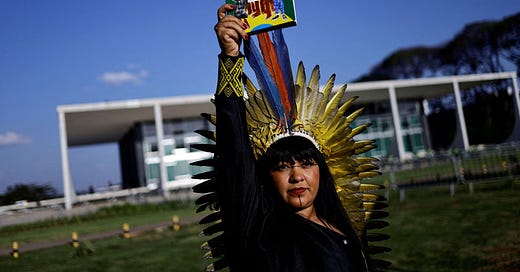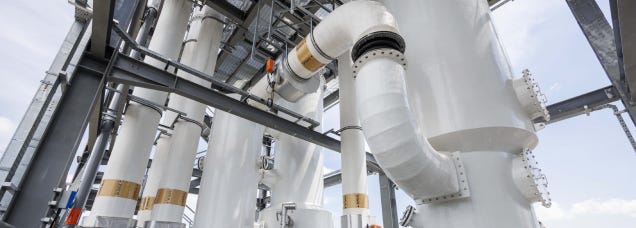
Brazil's Supreme Court Ruling Protects Indigenous Land Rights
Short on time? Get a quick rundown of today’s top stories from the ACR:
Brazil's Supreme Court ruled in favor of Indigenous land rights, rejecting the "Temporal Framework" argument and blocking attempts to restrict their claims to land.
The Biden-Harris Administration launched the American Climate Corps, a youth-focused initiative aiming to provide over 20,000 young people with career opportunities in clean energy, conservation, and climate resilience.
Antarctic winter sea ice reached a record low this year, raising concerns among scientists about the impact of climate change on the southern pole.
Brazil's Supreme Court Ruling Protects Indigenous Land Rights
Last week, Brazil's supreme Court ruled in favor of Indigenous land rights, blocking attempts to restrict their claims to land. The ruling rejected the argument of the "Temporal Framework," a legal theory that limited the demarcation of indigenous lands based on the criterion of occupation in 1988 when Brazil established its Constitution. This ruling is a significant win for Indigenous communities and a loss for agribusiness interests. It is an important step towards protecting Indigenous rights and the environment. However, despite the historic decree in the Supreme Court, a new bill seeking to impose similar temporal restrictions to those rejected by the Court is currently being discussed in the Brazilian Congress.
American Climate Corps Launched by Biden-Harris Administration
The Biden-Harris Administration has launched the American Climate Corps, a workforce training and service initiative that aims to put over 20,000 young people on career pathways in clean energy, conservation, and climate resilience. The program will prioritize equity and environmental justice, focusing on disadvantaged and energy communities. It will provide skills-based training, paid experiences, and pathways to high-quality employment opportunities. The American Climate Corps will collaborate with Tribal, State, and local governments, as well as with labor unions, nonprofits, the private sector, and philanthropy. The initiative represents a new era of youth-powered climate action and aims to address the urgent climate crisis while prioritizing environmental justice.
Antarctic Winter Sea Ice Reaches Record Low
Antarctic winter sea ice reached a record low this year, according to the U.S. National Snow and Ice Data Center (NSIDC). This has raised concerns among scientists about the impact of climate change on the southern pole. The decrease in sea ice can have dire consequences for animals like penguins and also contribute to global warming. The extent of Antarctic sea ice reached its lowest winter maximum since satellite catalogs began in 1979, with about 1 million square kilometers less ice than the previous record.
Gradiant is a water-technology startup based in Boston that specializes in cleaning up industrial wastewater and recycling it for use. The company's innovative water-treatment technologies significantly reduce water consumption and environmental impact in various industries, such as in microelectronics, mining, food and beverage, textiles, and more. Gradiant serves customers such as semiconductor giants TSMC and Micron, pharmaceutical companies Pfizer and GSK, Coca-Cola, and mining firm Rio Tinto. With a USD 1 billion valuation and USD 225 million in funding, Gradiant is poised for further growth and aims to expand into new markets.
Courses
Provider: Terra.do
Type: 4 week online program
Price: Paid
Events
Bloomberg Sustainable Business Summit
Organizer: Bloomberg
Theme(s): Sustainable business and finance
Date: October 5, 2023
Location: New York
Media
Hydrogen Is the Future—or a Complete Mirage
Provider: Foreign Policy Magazine
Type: Article & audio formats









